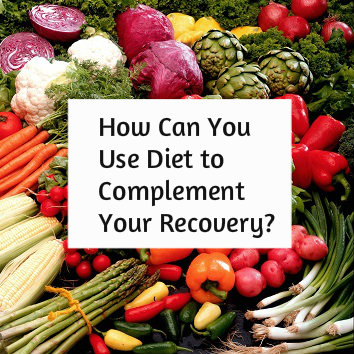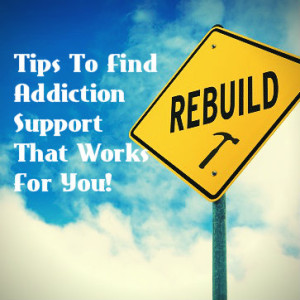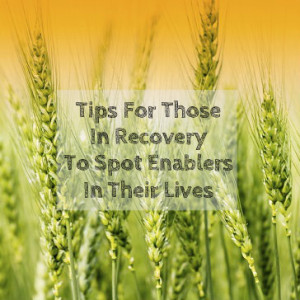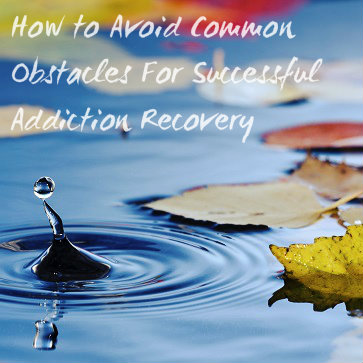Denial is a classic hallmark of addiction. Addicts cause themselves harm, they damage relationships with people they love, they get into legal trouble and financial trouble as well, and yet many will claim not to have a problem with drugs or alcohol. This is called denial, and while it is not a part of every addict’s arsenal, it is a very common defense mechanism. Until the veil of this denial can be lifted, an addict is unlikely to get help. By recognizing the signs of denial you can learn to help your loved one come to the realization that he needs help.
Is It Denial Or An Outright Lie?
 Lying is a conscious act meant to deceive. Your loved one may lie to you all the time. Lying is another defense mechanism used by addicts. To hide just how bad the problem is, he may lie to you about any number of things. To be in denial, however, is different. If your loved one is in denial, he truly believes that he doesn’t have a problem. It is frustrating to deal with an addict in denial, but realize that he is not trying to hurt you. He simply can’t see the extent of his problem.
Lying is a conscious act meant to deceive. Your loved one may lie to you all the time. Lying is another defense mechanism used by addicts. To hide just how bad the problem is, he may lie to you about any number of things. To be in denial, however, is different. If your loved one is in denial, he truly believes that he doesn’t have a problem. It is frustrating to deal with an addict in denial, but realize that he is not trying to hurt you. He simply can’t see the extent of his problem.
What Is Denial?
There are several different forms that denial can take. If you are dealing with someone who is in complete denial about his problem, he is totally oblivious to the harm that his drinking or drug use is causing. You may also be dealing with a case of partial denial. Addicts who only partially believe they have a problem may recognize that their drug use or drinking is a bad habit, but may deny the issues it is causing. Perhaps the most harmful type of denial occurs when the addict fully admits to having a problem, but denies needing any alcohol abuse help.
How Can You Recognize Denial?
Addicts are very good at behaving as if everything is fine. They strive to hide the damage that their addictions cause and present a normal face to the world. If you think your loved one is in deeper than he is letting on, look for signs that he is in denial of the severity of his problem. For instance, addicts in denial do a lot of rationalizing. He makes excuses for why he drinks or uses drugs. Maybe he says that he needs to drink after work to decompress.
Those in denial also tend to minimize their problems. Without even realizing that he is being untruthful, your loved one may tell you he had just two drinks at the bar, when he really had five. Avoidance is another denial strategy. Addicts sometimes withdraw from and avoid loved ones so they don’t have to have conversations about their behaviors. Also look out for blaming and bargaining. If your loved one blames external forces, even you, for his problem, he is in denial. He may bargain with you to let him have a few drinks if he promises not to drink the next day.
Addicts are good at denial. They deny their problem to others and to themselves. They get so good at it that denial becomes another unhealthy habit and a roadblock to getting help. If you think your loved one needs help, avoid falling into the trap of believing his denials. Trust your instincts and do your best to help him see what you see. If you fail to convince him, bring in other people who care about him and consider hosting an intervention. Addiction is a serious disease, you need to break through denial in order to get treatment and find success in recovery.
Read More About How You Can Help Someone With An Addiction
Being an addict takes a serious toll on your body. The longer you gave in to your cravings for drugs or alcohol, or both, the more damage you have done. The good news is that once you are in recovery, you can begin to reverse that damage and restore your health to a significant degree. To make the most of your recovery, to feel better and to avoid relapsing, turn to a healthful diet and lifestyle.
How Does Substance Abuse Impact Health?
How your addiction has affected your body depends on the drugs that you abused. In general, however, substance abuse impacts your health in two ways: the drug itself causes harm and your lifestyle likely causes you to neglect nutrition.
 Opiates can cause a lot of gastrointestinal symptoms like constipation, nausea, and vomiting. Alcohol causes deficiencies in certain vitamins, which can lead to anemia and damage to your nervous system. Alcohol can also cause high blood pressure, diabetes, and liver damage. Meth, cocaine, and crack all cause weight loss and malnutrition. They also cause dehydration, insomnia, and memory problems. Marijuana use can cause you to overeat, and as a result, to gain excess weight.
Opiates can cause a lot of gastrointestinal symptoms like constipation, nausea, and vomiting. Alcohol causes deficiencies in certain vitamins, which can lead to anemia and damage to your nervous system. Alcohol can also cause high blood pressure, diabetes, and liver damage. Meth, cocaine, and crack all cause weight loss and malnutrition. They also cause dehydration, insomnia, and memory problems. Marijuana use can cause you to overeat, and as a result, to gain excess weight.
How Can Diet Aide In Recovery?
When you first detox or start to get help for your addiction, diet and nutrition may be the furthest things from your mind. Your main goal is to stop using. Once you feel more secure in your recover, however, it’s time to think about repairing your body. When you feel better because of good nutrition, you will be less likely to relapse. There are a few general guidelines for the most important components of a complete and healthful diet:
- Limit fat intake – A high-diet is unhealthy and can lead to weight gain. Stick to healthy fats, such as those that come from plant sources. Olive oil, avocados, and coconut are all good sources to include as well as limited amounts of animal fats.
- Get plenty of protein – Protein is essential for energy and for building muscle. It is essential to get enough protein in your diet to start repairing some of the damage caused by drugs and alcohol. Include lean protein in your daily diet (e.g., fish, poultry, eggs, nuts and beans).
- Consume whole grains -Whole grains are an important energy source and are much better for you than refined grains. They provide lasting energy, a lot of fiber, and vitamins and minerals. Look for whole grain breads and pastas as well as oatmeal and brown rice.
- Include fruits and vegetables – Produce is an important source of nutrients. Eat a variety of fresh vegetables and fruits. Where fresh produce is limited or too expensive, go with frozen over canned.
- Consider vitamin supplements – Addicts are often deficient in B vitamins in particular, so consider getting a high-quality B complex supplement to take each day.
What To Eliminate From Your Diet While In Recovery
In addition to including healthful foods in your diet, it is important to eliminate certain things. Avoid sugar, as it can cause cravings and can become a substitute addiction. Natural sugar from fruits will be enough to meet your nutritional needs. Also avoid caffeine for similar reasons. Stay away from processed foods as much as possible; they can place extra stress on your liver. Keep your diet as full of natural, whole foods as possible for maximum benefit.
Remember as you work through your recovery that the greater your overall health, the greater your odds of avoiding relapse. A healthful diet will help you to feel better and will motivate you to keep making positive changes in your life. If you are unsure of how to best improve your diet, see your doctor for guidance or a referral to a professional nutritionist.
Read More About Diet And Exercise Aiding In Recovery
Getting professional support and care for your addiction is an essential element in your journey toward sobriety. Addiction, whether to alcohol or drugs, is a disease. It is a chronic disease that requires treatment. You need to learn skills that you will use for the rest of your life to avoid using again. Because professional care is so important to recovery, it is a good idea to spend some time finding the facilities and the caregivers that will best match your needs. No single approach or treatment philosophy works for everyone. You need to find what works for you by doing some research and asking questions.
Will Your Family Support You In Recovery?
 Besides professional care, having the love and support of family and friends is one of the most important tools for recovery. If you have no one you can rely upon for support, you may benefit from a residential rehab facility. This is the type of place in which you stay overnight for a week, a few weeks, or even a month. The support system is built in to the program and includes your fellow patients, counselors, doctors, nurses and staff members.
Besides professional care, having the love and support of family and friends is one of the most important tools for recovery. If you have no one you can rely upon for support, you may benefit from a residential rehab facility. This is the type of place in which you stay overnight for a week, a few weeks, or even a month. The support system is built in to the program and includes your fellow patients, counselors, doctors, nurses and staff members.
Do You Need Flexibility In Your Care?
If your family is available and actively willing to support you in your recovery, you could consider an outpatient program. Another reason to consider outpatient care is if you have other responsibilities that you cannot neglect for the weeks or months needed for residential care. Outpatient programs are designed to have flexible schedules so that you can get the support you need for addiction while still going to work during the day, keeping up with your classes at night, and meeting your family obligations on a day-to-day basis.
Will Religion Help You Stay Clean?
If you have a strong faith, you can find rehab facilities and treatment programs that include a religious element. Many people find that their beliefs are what help them the most when it comes to getting sober and staying clean. If this sounds like you, look for a facility or a program that is faith-based.
Do You Have Concerns About Mental Health?
It is not uncommon for addicts to also struggle with one or more mental health issues. If you have been diagnosed with depression, anxiety disorder, schizophrenia, bipolar disorder or any other mental illness, you need to receive care for your illness as well as for your addiction. The two are most likely intertwined. Make sure you look for a facility that recognizes the importance of a dual diagnosis. It is essential that you work with caregivers who are experienced at working with mental health and addiction together in order to get the best treatment.
How Will You Pay For Addiction Treatment?
Finally, make sure you select a treatment plan that you can afford to finish. There is no point in starting a treatment program only to quit early due to financial stress. If you have health insurance, find out what facilities and programs are covered. If you will be paying out of pocket, determine how much you can afford to spend and use that as part of your criteria for selection.
Finding the right treatment for addiction is important to your success. Treatment programs are not one-size-fits-all and to give yourself the best chance, you really need to shop around for the program and the professionals that will meet your needs. The Substance Abuse and Mental Health Services Administration is a good place to start for information. Take the time to read up and to make a wise choice.
Read More About Why You Need Fellowship To Recover From Addiction
Being in recovery from drug or alcohol addiction can be a wonderful thing. You are finally free of your burden, you have gone through treatment and you’re prepared to meet the rest of your life head-on. The only problem you have now is the possibility of relapse. Addiction is like any other chronic illness and relapsing is a very real possibility. There are things you can do, though, to strengthen your recovery and to make you more resistant to relapse. Consider volunteer work as one of those methods.
How Can Volunteering Help Me Avoid Relapse?
 One important way in which you can lessen your risk of relapsing is to fill your life with other things, not related to drugs and alcohol. This strategy can take many forms. For instance, eliminating old friends from your life, who still use, and making new, sober friends, can provide you with meaningful relationships that help you stay sober.
One important way in which you can lessen your risk of relapsing is to fill your life with other things, not related to drugs and alcohol. This strategy can take many forms. For instance, eliminating old friends from your life, who still use, and making new, sober friends, can provide you with meaningful relationships that help you stay sober.
Engaging in positive activities is another strategy for leaving no room in your life for drugs or alcohol. Such activities could include your work, going back to school, hobbies or volunteer work. Of all the activities you could choose, volunteering may be the most meaningful. The more meaningful and enriching the activity, the stronger it will make you and the more devoted you will be to it.
By volunteering your time and energy to help others, you take steps toward restoring your position within society. This can be a powerful way to improve your self-esteem and your sense of self-worth. When you feel better about yourself and that you are making important contributions to your community, and to the world in general, you will be more likely to resist the temptation to relapse.
What Volunteer Opportunities Can Keep Me Sober?
What you do for your volunteer work is up to you. Most people who volunteer find that they are more likely to stick with work that they feel passionate about. If you love animals, for instance, consider working at a shelter. If you feel strongly about poverty and children, volunteer for a charity that works with disadvantaged children in your community.
Another great option is to do volunteer work related to addiction. Now that you’re sober, you have a wealth of information and experience to share with others. You can offer up your knowledge to help with prevention programs in schools, or to work with addicts in homeless shelters who are trying to get clean. As a former addict you have plenty to offer and you can act as an example and an inspiration to others.
As you search for volunteer opportunities keep in mind that you should be open about your past, especially if you had legal problems associated with your addiction. Some organizations screen potential volunteers in a manner similar to hiring for jobs. Keep no secrets about your past and be open about how your recovery is going and that volunteer work is part your plan to stay sober and give back.
Volunteer work is a wonderful experience for anyone, but for an addict in recovery it can be especially powerful. By giving back you help to restore your image, your reputation, and your worth in your community. In doing so, you also will begin to slowly repair the way you feel about yourself, which is of the utmost importance.
Read More On How To Avoid Common Obstacles For Successful Addiction Treatment And Recovery
We’ve come through the early months or years of recovery and lived to tell the tale. We’ve made it through the 12 steps, done our inventories and amends, and we’re continuing to develop relationships in our 12-step fellowship. We’re growing in awareness of our character defects and beginning to learn what it means to be of service. Our relationships are improving. We’ve even started to find some joy and contentment. Things are looking up.
Not Letting Negativity Threaten Your Sobriety And Joy
 But for many of us who are accustomed to a “faster” life, we can’t help looking at our lives in addiction recovery and wondering: Is this all there is?
But for many of us who are accustomed to a “faster” life, we can’t help looking at our lives in addiction recovery and wondering: Is this all there is?
We might even be hesitant to express those thoughts out loud. Here we’ve been saved from the wreckage of our former days of addiction. We’ve been given the chance to live again. We’ve been freed from bondage. Who are we to complain that this is all just a little bit boring?
We may not want to say it outright, but we also know, as addicts, that the secrets and dissatisfactions we harbor have the potential to become slips and other serious threats to our sobriety. If we want to avoid a relapse, we have no choice but to be as honest as we can be. We can’t let our feelings fester.
Getting Over Believing That Your “Highs” Were Actual Highlights In Your Life
So let’s start there. Look at your day-to-day life now. You probably have calls to your sponsor, coffee dates with fellow 12-step members, your schedule of meetings, going to work, taking care of responsibilities around the house, spending time with family, paying bills, running errands, etc. You may recognize that all of these are good things and they are safe and respectable. But they lack a lot of the thrill and appeal and adventure of the former days when you often didn’t know where you would wake up on any given morning, following any and all manner of escapades the night before.
As addicts, we craved excitement in our lives and we sought it in the practice of our addiction. Through trying to keep up with the fast life, in getting high and by involving ourselves in a lot of drama, we worked to convince ourselves that our lives were pretty interesting and adventuresome. Every day could be a holiday if we could get high.
And now that we are recovering, we acknowledge that we still crave a little adrenaline. This is not a bad thing; it is a normal human thing. What we must do is not simply accept that our lives in sobriety are consigned to the dull day-to-day grind into eternity, but that we are humans who like excitement.
The answer is not to accept boredom but to begin expanding how we think about excitement. As addicts, quite honestly, we were a little lazy. Naturally, getting high provided a thrill, but it was a cheap one.
Seeking New Adventures And Positivity In Sobriety
Seek new adventure. There is nothing wrong with being a thrill-seeker, and once you’ve cleaned up the messes of the many “thrills” you experienced as an addict, you may find yourself getting a little antsy. Adventure and thrill is a good thing — it only becomes a bad thing when we seek it in the wrong places. Start seeking it in the right places. Travel, climb mountains, try new sports, meet new people—plan your own adventure. The world is full of rushes and thrills beyond what we could ever find in a bar or a bottle. Looking for real adventures and genuine thrills? Go out and find them!
Be grateful. Much of our mood and how we feel about our lot in life are products of our attitudes and perceptions. Yes, we understand that things just aren’t as fun as in the former days. But is there anything you might be forgetting? What about the fear? The hopelessness? The depression and the drama that have so magically disappeared from your life? Gratitude that we are no longer running from the law, fighting to hold a job, losing relationships and feeling our sanity slip away can help us to reframe the way we see our current situation. Yes, we may have had fun drinking ourselves into oblivion, but can we acknowledge that it wasn’t all excitement and adventure and that there are some very real benefits that come from the sober life?
Embrace real life. We must also come to simply accept that every day can’t be a holiday. That was our addict misperception. Our expectation was that everything should be fun, exciting, comfortable and exhilarating—we weren’t interested in anything that didn’t give up that thrill. Here’s the reality: life isn’t always fun and we all have to do tedious, boring things. Pain, discomfort and getting up and going to work every day are just the simple facts of life. As addicts we couldn’t deal with that. In recovery we must start to accept it, and even embrace the simple joys and contentment that the sober life brings.
Read More About Addiction Recovery Tips!
 Getting sober is a major achievement and one you should be proud of. Addiction is a terrible disease and taking the steps to recognize it, to get help, and to get clean are important accomplishments. Now that you’re sober, you just need to maintain that sobriety. The process of recovering from addiction is a lifelong one, but there are things you can add to your life to help you avoid relapsing. Among these is the presence of healthy relationships. Ditch the enablers in your life and build new relationships with people who will support your sobriety.
Getting sober is a major achievement and one you should be proud of. Addiction is a terrible disease and taking the steps to recognize it, to get help, and to get clean are important accomplishments. Now that you’re sober, you just need to maintain that sobriety. The process of recovering from addiction is a lifelong one, but there are things you can add to your life to help you avoid relapsing. Among these is the presence of healthy relationships. Ditch the enablers in your life and build new relationships with people who will support your sobriety.
Who Are My Enablers?
Your enablers may not be easy to spot immediately. An enabler is anyone who encourages you to use drugs or drink, whether or not he means to do it. The way in which this person encourages your habit may be obvious. For instance, if you have friends from the days when you were using, and they are still using, it will be very difficult for you to be around them without giving in to temptation. These people may or may not actively encourage you to use, but the simple fact that they are not sober makes them enablers.
Enablers can also appear in more subtle ways. Maybe you have someone in your life that always made you feel bad about yourself. She criticizes you and attacks your sense of self-worth. She may not be telling you to use drugs, but by making you feel bad, she may cause you to be tempted to relapse. If you are not sure who might be bad for you as a sober person, ask someone you trust. Sometimes it’s easier for others to see the subtlety of an enabler.
What Is A Healthy Relationship?
A healthy and mutually supportive relationship, whether romantic or platonic, is one in which each person respects and trusts the other. Each person should also be honest with the other, even when it isn’t easy to tell the truth. People in healthy relationships communicate well with each other, they support each other and they maintain their own separate identities. If a friendship or romantic relationship, or even a relationship with a family member has these characteristics, and the person encourages you to stay sober, you have a healthy relationship.
How Do I Make New Friends?
So what if your relationships are mostly unhealthy leftovers from the days when you were using? It’s time to make new friends. First, turn to family members with whom you can establish, or re-establish, a meaningful relationship. You may feel intimidated by the idea of making new friends, but your family is not likely to turn you down. Rebuilding relationships with your family will give you the confidence to go out and meet new people.
When you’re ready to venture out and find new, sober friends, consider starting with your support group. You can make great friendships with people who understand where you have been and that you want to stay sober. Together, you can help each other avoid relapse. You might also turn to other organizations that are important in your life, such as your church or your school. Getting involved in volunteer work also gives you the opportunity to make new friends who will share your values.
Nourishing New Friendships
Once you have new, healthy, and supportive relationships, be sure to nourish them. Friendship is all about give and take. You will benefit greatly from having sober friends, but make sure you give back to them as well. Be a good friend and you will reap the rewards of healthy relationships.
Read More To Find Out If You Are A Chief Enabler For An Addict
Addiction is a chronic disease that requires treatment for a lifetime. Unlike some chronic physical diseases, treatment for addiction is not as simple as taking a medication. Recovery from addiction requires a combination of therapy, support, willpower and lifestyle changes. Making changes to your diet and how you exercise can be a useful part of that treatment. Anecdotal evidence, as well as rigorous scientific research, has proven that a nutritious diet and an exercise regimen can help you cope with your disease.
How Can Diet Help Addicts?
 The first and most obvious way in which a healthy diet can help you is that it can restore some of the damage that you have done to your body. Drugs and alcohol really take a toll on your physical health. Much of treatment for addiction focuses on the psychological harm, but your body is suffering too. The substances you have been abusing have caused harm to your body, but you also have likely not been eating well, as your addiction was your main focus.
The first and most obvious way in which a healthy diet can help you is that it can restore some of the damage that you have done to your body. Drugs and alcohol really take a toll on your physical health. Much of treatment for addiction focuses on the psychological harm, but your body is suffering too. The substances you have been abusing have caused harm to your body, but you also have likely not been eating well, as your addiction was your main focus.
Some of the common nutritional issues that addicts face include electrolyte imbalances due to diarrhea and vomiting, vitamin deficiencies caused by excessive drinking, being overweight from smoking marijuana or from lack of exercise, and malnutrition from simply ignoring what you put into your body. A steady diet of cheap junk food is not unusual for addicts.
Focusing on your diet when you are in recovery can help to correct some of the damage you have caused by using drugs and by ignoring your nutritional needs for a period of time. Reestablishing a rounded and healthful diet will immediately begin to make you feel better. It will also give you something positive to focus on. A major struggle for addicts in recovery is finding something to fill the gap left by drug or alcohol abuse. When you focus time and energy on preparing good meals, you give your mind something positive to focus on.
How Can Exercise Aid Addiction Recovery?
Exercise, like nutrition, is an important aspect of a healthy lifestyle, for addicts and non-addicts alike. Regular exercise helps you to maintain a healthy weight, reduce your risk of diabetes, cancer, and heart disease, maintain strong bones and muscles, and improve your mood. All of these are important reasons for anyone to exercise, but for an addict in recovery, they become even more important.
Another reason to turn to exercise in recovery is the natural high that it can give you. When you exercise, your body produces chemicals called endorphins that make you feel good. The so-called runner’s high is a result of endorphins and refers to the positive feelings associated with the activity. In the absence of the high that you sought for so long from your drug of choice, depression is possible. The endorphins from exercise can be a powerful substitute for the artificial high that drugs gave you.
Move Forward In Recovery, But Don’t Substitute Your Addiction
Using diet and exercise as aids to recovery is overwhelmingly positive. Good nutrition and regular exercise can help your body heal, can improve your mood, and can give you a positive focus for your life.
The only risk is that of substituting your addiction. Addicts in recovery are at risk of substituting their substance of choice with an activity. It isn’t guaranteed to happen to you, but be aware of the possibility of your focus on diet and exercise becoming obsessive. Listen to your loved ones too. They may see the signs before you do. In spite of this risk, taking care of your diet and focusing on exercise are great ways to help you move forward in recovery.
Check Out These Tips To Help Recovery
If you’re contemplating addiction treatment, it’s probably not something you’re looking forward to. In fact, it wouldn’t be unusual if you’re completely dreading it and wish you somehow could avoid it altogether. But you can’t (for whatever reason) or you choose not to. So, it makes sense to do everything in your power to ensure that rehab is a one-time event and not end up having to repeat it down the road, right?
Of course, that’s much easier said than done. The road to recovery is replete with potential obstacles, some of which can be pretty daunting or so subtle that you don’t recognize them until it’s too late. Fortunately, though, the more aware and proactive you are throughout the process (i.e. before, during, and after rehab), the greater your chances of a successful, lasting recovery. Following are several ways to prepare for and avoid many of the most likely obstacles.
Prior To Rehab
Overcome the cost issue. There’s no doubt about it; addiction treatment often comes with a high price tag. Those daunting dollar signs can make you, like many who struggle with an addiction, feel that the treatment you need – and deserve – is simply out of reach. But before you throw your hands up in despair and reach for another drink (or hit), know that 1) you’re not alone, and 2) there are very likely options you haven’t yet realized.
 The first thing to do is check with your health insurance company (if you have health coverage) to find out exactly what they will cover. Many plans do cover addiction treatment to varying degrees. If you don’t have insurance, or if the coverage is very limited, then consider financing the program. Remember, this is a serious investment in your future, so don’t rule out financing it if needed.
The first thing to do is check with your health insurance company (if you have health coverage) to find out exactly what they will cover. Many plans do cover addiction treatment to varying degrees. If you don’t have insurance, or if the coverage is very limited, then consider financing the program. Remember, this is a serious investment in your future, so don’t rule out financing it if needed.
Many treatment facilities will allow you to set up a payment plan. Some offer financial assistance as well. Talk to the admissions department of the program or programs you’re considering to determine all the options available to you. You may find that the cost isn’t as prohibitive as it initially appeared, and that doors can open that you never expected. Don’t let the cost obstacle defeat you right out of the gate before you’ve looked into every possible option.
Another way to think of it: the cost of not getting treatment will almost certainly far exceed the cost of the most expensive treatment program in the long run – and often many times over. Many of those seeking treatment find that the old saying really does hold true: where there’s a will there’s a way. Have faith that a door will open if you knock on enough of them.
Avoid the wrong treatment program (for you) by being selective. Glossy brochures and fancy marketing tactics don’t necessarily mean a treatment center is good at what they do – or that it’s the right one for you. Do your research; check out the facility’s history, including staff credentials, licensure, etc. If possible, talk to anyone who’s received treatment there or who may be familiar with the program. Look for programs that are well-established, have a good reputation, and offer a comprehensive, holistic approach. Also, look for programs that offer good aftercare (more on that later).
It’s also important to make sure the program you choose offers treatment that’s based on research, rather than some “alternative” or trendy approach that may be lacking in substance even though it sounds really good on the surface. Extensive research has been done in the area of addiction treatment, and programs that base their treatment on scientific evidence are much more likely to be beneficial. Check to see if the program is properly accredited, which is a good indicator it’s approach is solid.
Make sure the program is a good fit for you. Some treatment centers have a specific philosophy (e.g. one that’s “based on Biblical principles”) or cater to a specific demographic (e.g. women only). You may thrive in a secular program but feel very uncomfortable in a faith-based rehab center – or vice versa.
You’ll be much more likely to succeed in rehab (and beyond) if you choose a program that fits you well the first time around. If you’re not sure, contact a few treatment centers and ask a lot of questions about their philosophy and approach. Keep in mind, though, that while none may feel like a “perfect fit”, one or two should feel like a better fit than others.
Along these same lines, it’s important to find a program that can accommodate any special needs you may have. For example, if you’re the sole custodian of your children, it would be a good idea to find a program that offers housing or other child care options for them while you’re in treatment.
During Rehab
Actively participate. Recovery isn’t something that passively happens to you – it’s something you actively work to achieve. You can go into addiction treatment kicking and screaming, sullenly determined to refuse to participate – and leave wondering why it seemed like a complete waste of time. Or, you can make the decision from the outset to actively participate and try to get as much out of your time there as you can.
Will it be fun? Probably not. Will it be worthwhile? That’s largely up to you.
Many addicts have a victim mentality, blaming everyone but themselves for their problems. Maybe your father was physically abusive while you were growing up, or your mother is an unbearable narcissist who finds nothing but fault with you. But while those experiences no doubt significantly impacted your life, they don’t have to define you. Now is the time to decide that your future is up to you and the choices you make from this day forward. The more you strive to get out of rehab this time, the less likely there will be a next time.
After Rehab
Regard your recovery as a long-term process. Successful recovery isn’t akin to a 100-yard dash. Rather, it’s much more like a marathon. Rehab may be a short-term, time-limited event, but it doesn’t end there. Yes, you did a lot of hard work while you were there – and it’s important to acknowledge that. But you didn’t walk out the door “cured” of your addiction. That’s why it’s imperative to continue using the things you learned in rehab if you’re serious about staying clean and sober.
Don’t let that discourage you. Remember, the most worthwhile things in life rarely (if ever) come quickly and easily. They take effort, tenacity, and determination.
Make sure you get proper aftercare. One of the most crucial aspects of successful recovery – and thwarting an early relapse – is proper aftercare. As mentioned above, recovery didn’t end when you left rehab. That would be nice, but it’s not reality. Many addiction treatment facilities offer ongoing aftercare to help ensure your success. However, if your rehab treatment occurs far away from home, it’s important to make sure a good aftercare plan is in place when you return home.
An aftercare program typically includes ongoing counseling and support. Support may come in the form of support groups (that you attend on a regular basis) as well as helping you establish a solid support network. Aftercare is crucial to your recovery because, without it, you are much more likely to relapse. It helps bolster you during times of temptation while keeping you accountable. Those who have a strong aftercare program are much less vulnerable to slipping back into their old habits – the very habits that contributed to their addiction.
Surround yourself with supportive people. You’ll encounter three types of people before, during, and after rehab: those who truly want you to succeed, those who want to undermine you, and those who don’t care one way or the other. The more you’re able to surround yourself with individuals in the first category, the greater your chances of staying on track with your recovery.
Sometimes supportive individuals (outside of those involved in your aftercare) are hard to find, especially if you don’t have supportive family or friends, have moved to a new city, or severely alienated everyone prior to rehab. But it’s not impossible with some effort. Twelve-step programs and other types of support groups are available in most areas. Online groups are also available, although they shouldn’t the replace face-to-face interactions that occur in support groups that you physically attend.
You can also find supportive individuals in a variety of contexts, such as a church community or an exercise-based program – any type of group in which people are more likely to endorse a healthy lifestyle and be supportive of fellow members. Talk to your aftercare counselor about ways to bolster your support network, as well as how to avoid situations and settings that may not be in your best interest.
Above all else, believe in yourself. You can either be your greatest cheerleader or your worst enemy. Ultimately, that choice is up to you. As someone in recovery, you may still be haunted at times by past pejorative labels. People may have been very cruel in the harsh words and judgments they directed towards you. And those can be hard to forget. But having an addiction doesn’t make you any less worthy than anyone else. Not to mention, choosing to get help, do the hard work, and continuing to work on your recover shows that you are resilient and courageous – two traits that should make you proud.
The recovery journey is anything but easy – anyone who says otherwise has never walked that path. The obstacles along the way can be overcome. Take it one step and one day at a time. Believe in yourself and you can and will succeed.
Check Out If Your Insurance Will Cover Your Rehab


